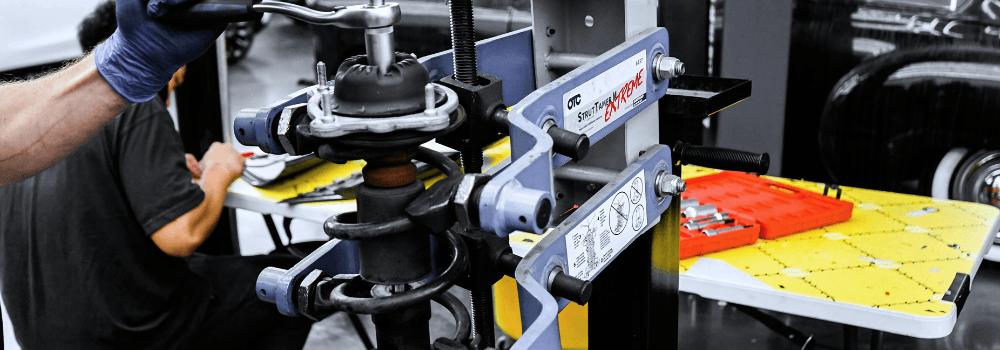Automation is disrupting manufacturing industries globally. In the UK, 7.4% of jobs are at high risk of automation, equating to about 1.5 million roles. While estimates of jobs at risk due to automation can vary, it's projected that 10-30% of UK jobs could be impacted in the coming years. Globally, the use of industrial robots continues to rise, with nearly 3.5 million robots in operation in factories as of 2021. However, despite this growth, the automotive industry still relies on human adaptability and judgment for tasks that machines are not yet equipped to handle effectively.
Why Robots Won't Replace Auto Workers
Companies like Kia, headquartered in Korea where the use of robots in manufacturing outpaces all other countries, are already claiming productivity improvements of nearly 200% from automation. Some plants have more than 1,000 robots and less than 1,000 people on an assembly line.
But automation has hit the Automotive industry in the past, seen in the industrial revolution and during World War II. Automotive company Ford have been using some level of automation since 1908, mass-producing the Model T. The first industrial robot, the Unimate, was installed in 1959. The first mass-production robot arm, this changed how cars would made for the next fifty years and beyond. After revolutions in how things were made by machines, there were still jobs. Often improvements were made, making workers safer.
Many leading car manufacture companies are now looking at ways of using automation to make things more efficient, cost-effective and safer, as well as using Automotive AI to compliment and augment their human teams. Some robotic systems are using machine learning to recognise when a human has entered its field and act accordingly. This could potentially go a long way to reducing accidents, all thanks to the robots themselves.
Automotive Jobs Meet Automotive AI
In 2023, the global robotics industry saw significant growth, with approximately 590,000 industrial robots expected to be installed worldwide. This marks a 7% increase from the previous year. The automotive industry remains a major driver of automation, contributing a substantial share to these installations, particularly in regions like Asia and the Americas
Car giant Mercedes recently hired humans to replace their automated systems, stating that:
“Robots can’t deal with the degree of individualisation and the many variants that we have today. We’re saving money and safeguarding our future by employing more people.”
Adaptability and flexibility are uniquely human traits that robots will never be able to replicate. This is just one of the reasons why Mercedes is shifting to ‘robot farming’, a practice of equipping workers with smaller, lighter machines to help them. The future of work seems to be collaborative between humans and robots.
What’s more, some experts are claiming that automation will create jobs for humans. Working with data generated by machines, entirely new analysts will be providing much-needed human insight into where the industry is going. But for now, let’s look at what changes automation might bring for the Automotive industry in the next few years.
What the Future of Automotive Jobs May Look Like
1. We May Need More of a Focus on Learning
Having adaptive skills that can be utilised in a variety of areas may enable Automotive engineers to jump between jobs. Industry leaders and education experts are all pointing to the education system as a vital place to begin countering the potential dangers of the shift to Automotive automation. Teaching with a focus on continuous learning will create a generation of multi-skilled workers.
For Automotive engineers currently working in the industry, upskilling or honing on transferable skills will give a more rounded portfolio for Automotive workers concerned about being replaced by robots. However, this next point on the future of Automotive jobs may allay your fears.
2. Robots Will Work With You, Not Instead Of You
Robots could take up to a third of the responsibilities away from people in their jobs. At first this sounds scary, but most of these responsibilities are repetitive and of low-importance. These are the ones that will be taken over by the robot, allowing the human counterpart to focus on the more engaging or rewarding elements that can only be overseen by a real thinking person.
On the factory floor, the future of Automotive jobs looks like teams of humans and robots working together on fittings. This combination of human creativity and flexibility with robotic precision will help Automotive production without limiting what can be done.
3. Automation Will See an Increase in Demand for Creative Skills
As the main bulk of Automotive manufacturing may be done partly or entirely by robots, creative skills will rise in importance for Automotive companies. Writing, graphic work and interpersonal skills will all be at the top of the list for Automotive manufacturers, allowing the human elements of the business to shine.
Humans will also be needed to deal with other humans. Social interactions are vital for our sense of self, of wellbeing and of belonging. No Automotive robot would ever be able to replace an effective team manager or communicate as empathetically as a human worker. Only people can identify problems and suggest dynamic solutions.
The kind of advanced thinking involved in designing something, networking with people, and dozens of other ‘human’ skills that we take for granted is something that robots may never be able to fully emulate. The future of Automotive jobs will involve a dynamic combination of Automotive AI and skilled Automotive engineers and technicians.
Learn more about how technology is changing the Automotive industry, Automotive Artificial Intelligence trends, and the best engineering careers right now.




